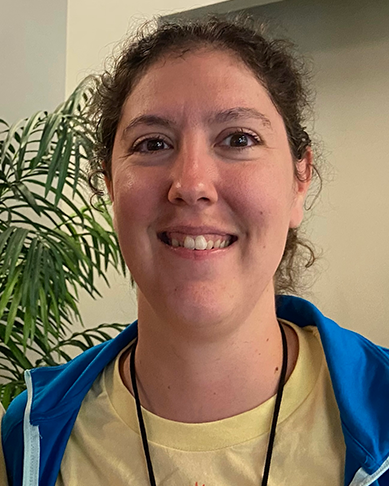
In my current ministry of working with adults with severe mental illness or developmental disability, I encounter clients who are suicidal. No matter how many times this occurs, I never get used to the emotions that flood me: fear, panic and helplessness. However, I have been fortunate enough to receive training to better handle this situation. My Catholic faith has informed my desire to seek out training to better help those who are hurting so terribly.
It is terrifying to be in a situation where someone you know tells you they feel like ending their life. Our sense of helplessness and pain can drown out the ability to think critically. Emotions can take over and we can say something that might be harmful. We tend to want to say things like, “You don’t mean it,” or “You’re just doing this for attention.” Or we can bypass our emotions and go into problem-solving mode: “You’ll be fine – just go for a walk.”
What is actually required of us in the moment is not to give in to our fear, or to problem-solve, but to be present to the person. This goes for anyone experiencing any type of duress. 
With education and training, we can feel more comfortable asking the hard questions, listening non-judgmentally and offering direct and practical help. That help could be urging them to call the National Suicide hotline at #988, or helping them make an appointment with a mental health professional.
We offer assistance because that is what our faith asks of us. If we truly believe in God the Creator, then we are challenged to love as God loves. In the Catholic tradition we have a school of thought called Catholic Moral Theology. Since the end of the Second Vatican Council, the study of moral theology has grown and has gotten quite complex. But that’s a good thing, because our world has gotten quite complex.
There is so much that can be said about Catholic Moral Theology, but an important piece is forming our conscience. It is in this sacred space within ourselves that we come in contact with the God of love and ultimate goodness. In the Roman Catholic tradition, this is called “sanctuary of conscience.” In this school of thought we have “tools” available to us. Take the subject of suicide. We now know more about suicide and mental health treatment than ever before. With the abundance of resources, we can inform our conscience into helping those who feel so broken inside. We can gather strength through our relationship with the Holy Spirit to guide our conversations. Through Scripture, we can also gather courage to love our neighbor as ourselves. And we can look to the Roman Catholic tradition of being our brother’s and sister’s keeper.
We are never alone in the work of being present to those who are hurting.
If someone you know is having thoughts of suicide, or you would like to learn more about suicide prevention, go to the Suicide Prevention Resource Center.
Sister Audra Turnbull is a member of the Sisters, Servants of the Immaculate Heart of Mary (IHM) of Monroe, Michigan. She professed first vows in 2018 and is scheduled to make her final vows in May of 2023. She is currently ministering as a the Assistant Field Director for Compassionate Companions. This ministry serves clients with developmental disabilities and mental illness in the southeast region of Michigan. She has attended Catholic Theological Union through CTU’s online Master in the Art of Pastoral Studies since January of 2019 and hopes to graduate in May of 2023.
In the early years of A Nun's Life, Sister Audra occasionally led Praying with the Sisters and appeared on an Ask Sister podcast. She is an active participant of Giving Voice.